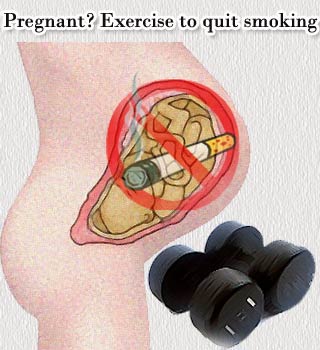
The dual pilot studies were conducted by a team of researchers led by Michael Ussher from St. George’s University Of London. Both the studies involved 32 pregnant women about 12 to 20 weeks into pregnancy, aged above 18 years and who smoked at least one cigarette a day.
Dr. Ussher commented, “These results are very encouraging and we are now conducting a randomized controlled trial with 850 women. Regular exercise is ideal for any pregnant women who smoke as it’s obviously safe and the benefits are enormous.â€
While one study included women who exercised once a week for six weeks under supervision, in the other study women participated in two exercise sessions per week again for six weeks followed by one session a week for three weeks. Along with being encouraged to participate in any form of physical activity or exercise on their own, all these volunteers also received advice and counseling to stop smoking and becoming more active.
Results of the study showed nearly one in four women participants to have given up smoking before the birth of their baby. Additional positive benefits of the program included weight loss, improved self-image and reduced cravings. The number was interestingly quite similar to the number of non-pregnant smokers who had quit using nicotine replacement.
Nearly 17% of women in the UK and 20% women in the US admitted to smoke during pregnancy despite warnings. While most attempts to kick the butt proved to fail, the most successful methods were those that involved a combination of nicotine replacement and behavioral therapy. However nicotine replacement therapy may harm the foetus.
Researchers thus concluded that exercise could in fact even help non-pregnant women give up smoking as some evidence suggest that it is effective in reducing the cravings experienced by smokers.
The new study is part of the open access journal BMC Public Health.
